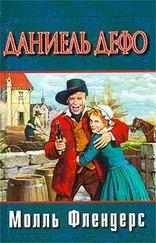Даниэль Дефо - History of the Plague in London
Здесь есть возможность читать онлайн «Даниэль Дефо - History of the Plague in London» весь текст электронной книги совершенно бесплатно (целиком полную версию без сокращений). В некоторых случаях можно слушать аудио, скачать через торрент в формате fb2 и присутствует краткое содержание. Год выпуска: 2014, Издательство: epubBooks Classics, Жанр: Историческая проза, на английском языке. Описание произведения, (предисловие) а так же отзывы посетителей доступны на портале библиотеки ЛибКат.
- Название:History of the Plague in London
- Автор:
- Издательство:epubBooks Classics
- Жанр:
- Год:2014
- ISBN:нет данных
- Рейтинг книги:4 / 5. Голосов: 1
-
Избранное:Добавить в избранное
- Отзывы:
-
Ваша оценка:
- 80
- 1
- 2
- 3
- 4
- 5
History of the Plague in London: краткое содержание, описание и аннотация
Предлагаем к чтению аннотацию, описание, краткое содержание или предисловие (зависит от того, что написал сам автор книги «History of the Plague in London»). Если вы не нашли необходимую информацию о книге — напишите в комментариях, мы постараемся отыскать её.
History of the Plague in London — читать онлайн бесплатно полную книгу (весь текст) целиком
Ниже представлен текст книги, разбитый по страницам. Система сохранения места последней прочитанной страницы, позволяет с удобством читать онлайн бесплатно книгу «History of the Plague in London», без необходимости каждый раз заново искать на чём Вы остановились. Поставьте закладку, и сможете в любой момент перейти на страницу, на которой закончили чтение.
Интервал:
Закладка:
It was about the 10th of September that my curiosity led, or rather drove, me to go and see this pit again, when there had been near four hundred people buried in it. And I was not content to see it in the daytime, as I had done before,—for then there would have been nothing to have been seen but the loose earth, for all the bodies that were thrown in were immediately covered with earth by those they called the "buriers," which at other times were called "bearers,"—but I resolved to go in the night, and see some of them thrown in.
There was a strict order to prevent people coming to those pits, and that was only to prevent infection. But after some time that order was more necessary; for people that were infected and near their end, and delirious also, would run to those pits wrapped in blankets, or rugs, and throw themselves in, and, as they said, "bury themselves." I cannot say that the officers suffered any willingly to lie there; but I have heard that in a great pit in Finsbury, in the parish of Cripplegate (it lying open then to the fields, for it was not then walled about), many came and threw themselves in, and expired there, before they threw any earth upon them; and that when they came to bury others, and found them there, they were quite dead, though not cold.
This may serve a little to describe the dreadful condition of that day, though it is impossible to say anything that is able to give a true idea of it to those who did not see it, other than this: that it was indeed very, very, very dreadful, and such as no tongue can express.
I got admittance into the churchyard by being acquainted with the sexton who attended, who, though he did not refuse me at all, yet earnestly persuaded me not to go, telling me very seriously (for he was a good, religious, and sensible man) that it was indeed their business and duty to venture, and to run all hazards, and that in it they might hope to be preserved; but that I had no apparent call to it but my own curiosity, which, he said, he believed I would not pretend was sufficient to justify my running that hazard. I told him I had been pressed in my mind to go, and that perhaps it might be an instructing sight that might not be without its uses. "Nay," says the good man, "if you will venture upon that score, 'name of God, [111] "'Name of God," i.e., in the name of God.
go in; for, depend upon it, it will be a sermon to you, it may be, the best that ever you heard in your life. It is a speaking sight," says he, "and has a voice with it, and a loud one, to call us all to repentance;" and with that he opened the door, and said, "Go, if you will."
His discourse had shocked my resolution a little, and I stood wavering for a good while; but just at that interval I saw two links [112] Torches.
come over from the end of the Minories, and heard the bellman, and then appeared a "dead cart," as they called it, coming over the streets: so I could no longer resist my desire of seeing it, and went in. There was nobody, as I could perceive at first, in the churchyard, or going into it, but the buriers, and the fellow that drove the cart, or rather led the horse and cart; but when they came up to the pit, they saw a man go to and again, [113] "To and again," i.e., to and fro.
muffled up in a brown cloak, and making motions with his hands, under his cloak, as if he was [114] Were.
in great agony. And the buriers immediately gathered about him, supposing he was one of those poor delirious or desperate creatures that used to pretend, as I have said, to bury themselves. He said nothing as he walked about, but two or three times groaned very deeply and loud, and sighed as [115] As if.
he would break his heart.
When the buriers came up to him, they soon found he was neither a person infected and desperate, as I have observed above, or a person distempered in mind, but one oppressed with a dreadful weight of grief indeed, having his wife and several of his children all in the cart that was just come in with him; and he followed in an agony and excess of sorrow. He mourned heartily, as it was easy to see, but with a kind of masculine grief, that could not give itself vent by tears, and, calmly desiring the buriers to let him alone, said he would only see the bodies thrown in, and go away. So they left importuning him; but no sooner was the cart turned round, and the bodies shot into the pit promiscuously,—which was a surprise to him, for he at least expected they would have been decently laid in, though, indeed, he was afterwards convinced that was impracticable,—I say, no sooner did he see the sight, but he cried out aloud, unable to contain himself. I could not hear what he said, but he went backward two or three steps, and fell down in a swoon. The buriers ran to him and took him up, and in a little while he came to himself, and they led him away to the Pye [116] Magpie.
Tavern, over against the end of Houndsditch, where, it seems, the man was known, and where they took care of him. He looked into the pit again as he went away; but the buriers had covered the bodies so immediately with throwing in earth, that, though there was light enough (for there were lanterns, [117] This word is from the same root as "lamp." The old form "lanthorn" crept in from the custom of making the sides of a lantern of horn.
and candles in them, placed all night round the sides of the pit upon the heaps of earth, seven or eight, or perhaps more), yet nothing could be seen.
This was a mournful scene indeed, and affected me almost as much as the rest. But the other was awful, and full of terror: the cart had in it sixteen or seventeen bodies; some were wrapped up in linen sheets, some in rugs, some little other than naked, or so loose that what covering they had fell from them in the shooting out of the cart, and they fell quite naked among the rest; but the matter was not much to them, or the indecency much to any one else, seeing they were all dead, and were to be huddled together into the common grave of mankind, as we may call it; for here was no difference made, but poor and rich went together. There was no other way of burials, neither was it possible there should, [118] Supply "be."
for coffins were not to be had for the prodigious numbers that fell in such a calamity as this.
It was reported, by way of scandal upon the buriers, that if any corpse was delivered to them decently wound up, as we called it then, in a winding sheet tied over the head and feet (which some did, and which was generally of good linen),—I say, it was reported that the buriers were so wicked as to strip them in the cart, and carry them quite naked to the ground; but as I cannot credit anything so vile among Christians, and at a time so filled with terrors as that was, I can only relate it, and leave it undetermined.
Innumerable stories also went about of the cruel behavior and practice of nurses who attended the sick, and of their hastening on the fate of those they attended in their sickness. But I shall say more of this in its place.
I was indeed shocked with this sight, it almost overwhelmed me; and I went away with my heart most afflicted, and full of afflicting thoughts such as I cannot describe. Just at my going out of the church, and turning up the street towards my own house, I saw another cart, with links, and a bellman going before, coming out of Harrow Alley, in the Butcher Row, on the other side of the way; and being, as I perceived, very full of dead bodies, it went directly over the street, also, towards the church. I stood a while, but I had no stomach [119] Inclination.
to go back again to see the same dismal scene over again: so I went directly home, where I could not but consider with thankfulness the risk I had run, believing I had gotten no injury, as indeed I had not.
Интервал:
Закладка:
Похожие книги на «History of the Plague in London»
Представляем Вашему вниманию похожие книги на «History of the Plague in London» списком для выбора. Мы отобрали схожую по названию и смыслу литературу в надежде предоставить читателям больше вариантов отыскать новые, интересные, ещё непрочитанные произведения.
Обсуждение, отзывы о книге «History of the Plague in London» и просто собственные мнения читателей. Оставьте ваши комментарии, напишите, что Вы думаете о произведении, его смысле или главных героях. Укажите что конкретно понравилось, а что нет, и почему Вы так считаете.












